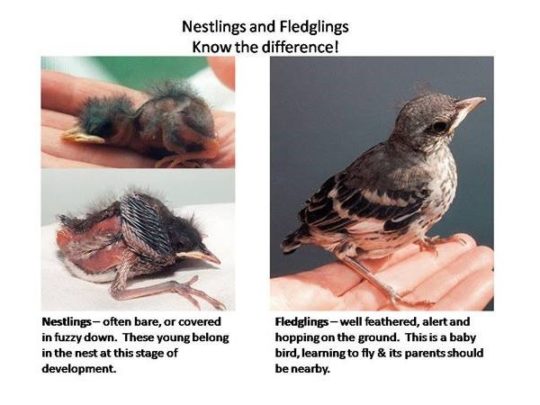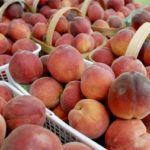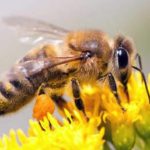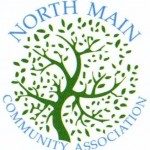*Normally the Board of Directors meets the first Wednesday of most months at the Sears Shelter. Members are welcome to attend board meetings. Please email northmaincomm@gmail.com for the location and to find out if we are meeting that month.
Welcome to our Newest Business Members
 Pam Childress, a Commercial/Residential Realtor with BHHS C. Dan Joyner, is a North Main resident. “Berkshire Hathaway HomeServices C. Dan Joyner, REALTORS® is the Upstate’s real estate leader* and has served the region for more than 50 years.” In the words of one of her clients “Pam is very personal and professional. She makes listing a home easy and alleviates lots of the stress with getting a home prepared before putting it on the market. This is my second experience with Pam and I would use her again in a heartbeat if I have another home to buy or sell! ” You can reach her at her cell: (864) 201-8832 or Office: (864) 233-7724 or by visiting her webpage.
Pam Childress, a Commercial/Residential Realtor with BHHS C. Dan Joyner, is a North Main resident. “Berkshire Hathaway HomeServices C. Dan Joyner, REALTORS® is the Upstate’s real estate leader* and has served the region for more than 50 years.” In the words of one of her clients “Pam is very personal and professional. She makes listing a home easy and alleviates lots of the stress with getting a home prepared before putting it on the market. This is my second experience with Pam and I would use her again in a heartbeat if I have another home to buy or sell! ” You can reach her at her cell: (864) 201-8832 or Office: (864) 233-7724 or by visiting her webpage.
Naked Pasta specializes in producing a variety of fresh handmade Italian style meals that are ready to cook. All of the products are made in-house. Buying as many local ingredients first, and using only fresh  produce, Naked Pasta offers an assortment of fresh hand cut pastas, artisan ravioli, homemade sauces and spreads, handmade lasagna, and other seasonal food items. Naked Pasta prides themselves in easy, fast, and preservative free products.
produce, Naked Pasta offers an assortment of fresh hand cut pastas, artisan ravioli, homemade sauces and spreads, handmade lasagna, and other seasonal food items. Naked Pasta prides themselves in easy, fast, and preservative free products.
Naked Pasta’s retail location is in The Village of West Greenville at 1286 Pendleton Street. Naked Pasta can also be purchased at local grocery stores and farmers markets including: Swamp Rabbit Cafe and Grocery, New York Butcher Shoppe (Augusta & Woodruff) and the TD Saturday Market, downtown Greenville. You can also find Naked Pasta at a few of your favorite local restaurants, like Roost Restaurant, The Cazbah and Up on the Roof! Call them at 864.283.5844, email chris.nakedpasta@gmail.com or check out their Facebook page.
NMCA Membership Social Postponed
 In reading about and observing individual and community responses to the COVID-19 epidemic, the NMCA board has made the decision to postpone, to a date to be determined, our largest annual social gathering. We want to be conscientious of the health and well-being of our community and residents. Thank you for your understanding.
In reading about and observing individual and community responses to the COVID-19 epidemic, the NMCA board has made the decision to postpone, to a date to be determined, our largest annual social gathering. We want to be conscientious of the health and well-being of our community and residents. Thank you for your understanding.
Greenville’s Response to the Coronavirus
The city has made some changes in business but essential operations including police, fire, court and public works continue. We have provided several items related to changes in operation and other aspects of their plan on our website. Just click on announcements.
NMCA board members participated in a conference call March 25 arranged by Council member John DeWorken and including Assistant City Manager, Shannon Lavrin, and other District 1 Association Presidents. A summary of this meeting can be found on our website.
For continuing updates on COVID-19, you can check out the city’s emergency information page.
Development Update and Other City News
Northpointe Update: In talking with a representative from Central Realty Holdings, they don’t expect major delays in construction unless the city instigates new restrictions on things like permitting and inspections, or a stay-at-home mandate is put in place. Delays at this point are possibly weeks, not months. In spite of what you may have seen or heard, they don’t expect Harris Teeter to open until mid- to late-July…again, depending on what happens with COVID-19. For a project overview and some interesting demographics, check out their website.
NMCA March Community Meeting: For those not able to attend the March Community Meeting, NMCA President Dave Modeen has provided some notes about key topics below:
NMCA members heard from Marlaine Creasey-Smith, Director, Parks and Rec, Councilmember Dorothy Dowe, Lieutenant Michael Hammett of GPD and Dave Modeen, President, NMCA.
City Manager John McDonough, also attended and offered brief remarks regarding his prior experience, impressions of Greenville, and the importance of community parks in locales where he has worked. For example, Dave noted that while John was City Manager in Sandy Springs, GA, the city parks received numerous national awards.
Marlie’s remarks, specifically regarding the future of the Bobby Pearse Community Center:
- Council directed Parks & Rec to initiate asbestos abatement inside the BPC and obtain repair bids to restore the usability of BPC in its existing footprint plus address ADA-compliance access and storm drain issues with the existing parking lot. The abatement is underway and should be complete in the next few weeks.
- The bid process – issuance, review and approval – should take at least three months. That is an aggressive schedule intended to support an exigent budget review by City Council. Note: Marlie, John and Dorothy each indicated Council support to fund the repairs this year, but action cannot be taken without specific plans and associated costs. The earliest completion date for the work is end of 2020.
- The bathrooms in the existing BPC design are likely to be accessible only when the Center is open, e.g., no after-hours access. Parks & Rec and Engineering staff are assessing options to provide a plumbed restroom rather than the existing porta-potty near the ballpark. Wetland / drainage restrictions limit construction sites. The only location that may work would be where the basketball court currently exists. NMCA offered to work with Staff to facilitate dialog on such a tradeoff, with ideas on where else a court be placed.
- Residents complimented Parks & Rec staff for the improved ground maintenance… Rotary Park in general. Marlie acknowledged the help of North Rotary members and its organizing of volunteers. Hands On Greenville (May 2nd) presents an opportunity for more volunteer efforts.
- Residents noted that standing water in the grassy-muddy area south of the sidewalk that reaches from the playground to the steps up to North Main Street is a mess! It was acknowledged that something must be done, but no clear plan exists. Marlie noted some keep calling for a small dog park.
- Marlie noted that playground equipment is on a 10 to 20-year replacement schedule based on scheduled design life cycle. She was not aware where North Main Rotary playground stands relative to the other 27 other City playgrounds.
With John DeWorken unable to attend due to illness, Dorothy Dowe filled in on short notice (Thank you, Dorothy). She reviewed recent items from the Council Retreat:
- WRT roads and traffic issues, Dorothy noted detailed plans are under review to address Traffic Calming on Park Avenue and Chick Springs Road, and repaving of Stone Avenue. Similarly, enhanced crosswalk safety designs are being rolled out (larger and brighter signage to catch driver attention).
- Safe routes to schools – especially pedestrian routes…something Dorothy and John on working on together.
- Council has asked Parks & Rec for an integrated City Canopy Plan to add more trees as well as better manage the health of those on public property.
- Council believes the City needs more clarity and communication of expectations with respect to the use of short-term rentals in neighborhoods and commercial areas.
From Lt. Hammett of GPD (our representative in Zone 2):
- Citizen-provided security footage has become an increasingly useful law enforcement tool, helping police establish leads and identify suspects.
- SafeWatch is a new voluntary camera program aimed at creating a database of private security cameras located throughout the city. With SafeWatch, when an incident occurs, officers can quickly identify nearby cameras that may have captured valuable evidence and can contact the camera owners to request access to the footage. The goal of the program is to promote public safety and deter crime while collaborating with the community they serve. Evidence provided by your camera could mean the difference between bringing a perpetrator to justice and a crime remaining unsolved. He encouraged residents to register their cameras with the GPD.
- Crime in North Main is low – nonetheless, break-ins or thefts occur—most are parked cars (usually unlocked) or open garage doors. Thefts from cars often include firearms and the majority of residents have no record for the firearm serial numbers—which inhibits recovery of the firearm from thieves or worse yet, use of such firearms in the commission of crimes.
- Golf cart safety – must be operated by a licensed driver (minimum 16 years old). Too many passengers and/or unprotected infants and children.
NMCA President Dave Modeen reviewed some of the results of the February Survey. Thanks to those members who responded.
Key take-aways for the NMCA Board are:
- NMCA bi-monthly newsletters, emails and postings — rated highly.
- Interest in attending NMCA-sponsored meetings is mixed. Generally, attendance depends on the importance of the issue – home security, City development, Community infrastructure and infill issues, and traffic / pedestrian safety rate high.
- Members appreciate being informed of organizations in need of financial support, but NMCA dues are not generally viewed as a source. There are exceptions, such as the F.E.T.C.H. therapy dog at PRISMA Children’s Hospital sponsored by the PTA at Stone Academy.
- Beautification Efforts – North Main lighting/banners; Semi-annual cleanup
- Traffic safety – remains a high concern. Similar as voiced by Dorothy and Lt. Hammett.
- 92% of survey respondents have not been crime victims. Property theft (8%) remains the major problem
- Support for periodic, small social drop-ins. We will focus on one large social for adults and children. Members overwhelming agreed that child-focused events are not something NMCA needs to offer– many other opportunities exist in the community and city.
2020 Plans
- An earlier Spring Social – April 26th. Specifics TBD. (Obviously in light of the coronavirus, plans have changed for this year.)
- Sprinkle in 3 ‘small’ drop-in social events
- Enhance City Engagement. Identify ‘meaningful topical meetings’ (Parks & Rec—let’s help maximize use of BPC, County Square, Traffic control, Unity Park, Transportation, Affordable Housing,TBD)
- Implement an RSVP method along the lines of EventBrite to do a, b, c. This will help us in more effectively using NMCA funds.
- Work with the city to add decorative lights / event banners on North Main… extend what exists downtown.
- Perform an audit/review/report of NMCA financial records at the end of the year.
Retailers Say Produce Supplies Solid, Could Tighten Up Later
Everyone is worried about finding toilet paper and sanitizers, but those aren’t the only grocery items that have been affected. Drastic measures taken by municipal and state governments to limit the spread of the new coronavirus have resulted in unprecedented demand at grocery stores in recent weeks, and retailers expect the huge sales increases could lead to some difficulty sourcing certain produce items in the coming months. In the immediate wake of retail demand spiking, it was a challenge to source potatoes, carrots, onions and salads, among other items, just because the situation took everyone by surprise and stores didn’t have a chance to ramp up existing inventory.
Items like potatoes and onions are in extreme demand as more of the world is cooking at home, so it will probably take a few weeks for shopping patterns to normalize before the industry will truly be able to identify any potential gaps in supply. (The Packer, Produce Industry News)
An Unexpected Upside to the Coronavirus Quarantine
Levels of air pollutants and warming gases over some cities and regions are showing significant drops as coronavirus impacts work and travel. Researchers in New York told the BBC their early results showed carbon monoxide mainly from cars had been reduced by nearly 50% compared with last year. Emissions of the planet-heating gas CO2 have also fallen sharply.
Traffic levels in the city were estimated to be down 35% compared with a year ago. Emissions of carbon monoxide, mainly due to cars and trucks, have fallen by around 50% for a couple of days this week according to researchers at Columbia University. They have also found that there was a 5-10% drop in CO2 over New York and a solid drop in methane as well.
But there are warnings levels could rise rapidly after the pandemic. With global economic activity ramping down as a result of the coronavirus pandemic, it is hardly surprising that emissions of a variety of gases related to energy and transport would be reduced. Scientists say that by May, when CO2 emissions are at their peak thanks to the decomposition of leaves, the levels recorded might be the lowest since the financial crisis over a decade ago.
For our Four-Legged Friends
Greenville County Animal Care is open as of this writing and is always in need of foster care for those animals with minor health issues or those that are too young to be neutered or adopted or need socialization. This is especially true now in light of the virus epidemic. What better time to foster or adopt than when you can stay home to help the new family member adjust. Stop by the shelter today to take a look. They especially need big dogs fostered. You can also email fosterapet@greenvillecounty.org . The annual Tails & Trails 5K has been postponed until further notice. More information will be released as it becomes available.
 For a truly heart-warming story to brighten your day, read on…. Shady the cat came into Greenville County Animal Care with a microchip and staff called the number listed. They were shocked and overjoyed to find that they
For a truly heart-warming story to brighten your day, read on…. Shady the cat came into Greenville County Animal Care with a microchip and staff called the number listed. They were shocked and overjoyed to find that they  were about to reunite him with his mom after an entire 10 years! Shady went missing in Spartanburg and was found in Greenville. Here she is with her owner, Alanna. Microchips matter, folks!
were about to reunite him with his mom after an entire 10 years! Shady went missing in Spartanburg and was found in Greenville. Here she is with her owner, Alanna. Microchips matter, folks!
The Greenville Humane Society is closed until April 20. Greenville Humane Society’s Mutt Strutt has been postponed until Nov 7. Look for more information on their FB page.
As the weather warms, kitty season is not far behind. What if you find a litter of kittens? At first, keep your distance to determine if the kittens have a mother who may just be out gathering food for them. Put blades of  grass or twigs on tiny kittens as a way to see if Mom came back without hovering. You don’t want to scare her away! The mother cat will always offer them a better chance of survival. If you don’t see the mom within eight hours, they are most likely orphans.
grass or twigs on tiny kittens as a way to see if Mom came back without hovering. You don’t want to scare her away! The mother cat will always offer them a better chance of survival. If you don’t see the mom within eight hours, they are most likely orphans.
Leave the family together, while providing food, water and shelter until the kittens can eat on their own. If there is no mom and kittens are too young to be spayed or neutered, you or someone you know who has the time and resources can help care for them in place. Check out this Kitten Care Guide for more information and instructions on Care in Place. Additional information on feeding guidelines can be found here. For more information, click here.
Has Spring Sprung?
It sure seems like it. With the warmer, sunny weather that is finally coming, we’re all probably getting the bug to get out and clean up and plant in our yards. Recent rain will likely push many plants to leaf out even faster. This year the Upstate Native Plant Sale has been postponed until October. The free tree giveaway program that NMCA was working with TreesUpstate on has been postponed for now. The participants will get an email when a date and location has been set. The South Carolina Department of Agriculture has made the decision to postpone all events at SCDA facilities until at least May 10, including the Piedmont Plant & Flower Festival originally scheduled for April 30.
There’s still lots to do in your yard. You can still prune many trees and shrubs. Azaleas, dogwood, forsythia, redbud and rhododendron should be pruned after they bloom, since they set blooms in the fall on the previous season’s growth. If you prune now, you prune off the part that will bloom. Almost anything that blooms after June 1 (except oakleaf hydrangea and late-flowering azalea cultivars) can be pruned safely. See Pruning Trees and Pruning Shrubs for more information.
It’s not too late to check the pH of your soil to see if amendments are needed for plants you want to add. Remember that azaleas, rhododendrons, hollies, hydrangeas, etc. prefer acidic soils (pH below 7). Check this site for others. Check with the Clemson Cooperative Extension Service for forms, costs, etc.
With all this free time, many folks are spending more time in their yards and gardens. It’s a good time to get those catalogs out or get online and see what plants you can add to your yard to attract bees, butterflies and hummingbirds. You can find many lists of plants online. A good list of plants that attract hummingbirds can be found here. Clemson has a good factsheet on starting a Pollinator Garden. While you’re trying to stay home, browse those garden catalogs or even go online and order plants. Even stores like Home Depot sell plants online, delivered to your door. Dave’s Garden is a great site for finding sources of plants you are looking for.
“Flowers always make people better, happier, and more helpful; they are sunshine, food and medicine for the soul.” (Luther Burbank)
For the Birds
Our hummingbirds should be arriving back anytime now. Keep an eye out for the little jewels and get your hummingbird feeders ready to go. Many perennials will not be blooming yet, so they may need a little help.
Many birds are starting to get brighter colors, getting ready for mating season. The Great Backyard Bird Count provides thousands of data points that show how the winter ranges of some birds have changed significantly due to the warming climate.
A good program to check out is Project FeederWatch …a winter-long survey of birds that visit feeders at backyards, nature centers, community areas, and other locales in North America. FeederWatchers periodically count the birds they see at their feeders from November through early April and send their counts to Project FeederWatch. FeederWatch data help scientists track broadscale movements of winter bird populations and long-term trends in bird distribution and abundance.
 As we approach late spring and summer, you’ll likely see or hear baby birds. What if you find one on the ground? The first thing to do is to figure out if the baby bird is a nestling or a fledgling. Most of the baby birds people find are fledglings. These are young birds that have just left the nest, are still under the care of their parents, and do not need our help. Fledglings are feathered and capable of hopping or flitting, with toes that can tightly grip your finger or a twig. These youngsters are generally adorable and fluffy, with a tiny stub of a tail. Usually there is no reason to intervene at all beyond putting the bird on a nearby perch out of harm’s way and keeping pets indoors. If it’s a nestling, the nest is almost certainly nearby. If you can find the nest (it may be well hidden), put the bird back as quickly as possible. Don’t worry—parent birds do not recognize their young by smell. They will not abandon a baby if it has been touched by humans. If the nest has been destroyed you can make a new one, place the chick back inside and watch to see if the parents come back. More information can be found here.
As we approach late spring and summer, you’ll likely see or hear baby birds. What if you find one on the ground? The first thing to do is to figure out if the baby bird is a nestling or a fledgling. Most of the baby birds people find are fledglings. These are young birds that have just left the nest, are still under the care of their parents, and do not need our help. Fledglings are feathered and capable of hopping or flitting, with toes that can tightly grip your finger or a twig. These youngsters are generally adorable and fluffy, with a tiny stub of a tail. Usually there is no reason to intervene at all beyond putting the bird on a nearby perch out of harm’s way and keeping pets indoors. If it’s a nestling, the nest is almost certainly nearby. If you can find the nest (it may be well hidden), put the bird back as quickly as possible. Don’t worry—parent birds do not recognize their young by smell. They will not abandon a baby if it has been touched by humans. If the nest has been destroyed you can make a new one, place the chick back inside and watch to see if the parents come back. More information can be found here.
Weather Tidbits
According to data from 1985 to 2015, the average maximum temperature for Greenville in April is 73°F, the average low is 50°F and the average precipitation (rainfall) is 3.53”. Looking at records from 1890 to 2017 the maximum high was 94 on April 20 in 1917. The highest low temperature was 70 on April 29, 1894. The minimum high temperature was 40 on April 8, 1907 and the minimum low was 22 on April 14 & 15, 1907. Maximum precipitation (rain) in a 24-hour period was 3.34” on April 29, 1963. The wettest April was in 1964 with 11.3 inches and the driest was in 1915 with 0.57 inches. In 1987, we actually recorded 0.3” of snow on April 3 and a trace as recent as April 2, 2019! http://www.dnr.sc.gov/climate/sco/index.php
January 2020 was the Earth’s hottest recorded January on average, compared with 141 years of temperature records. The four warmest Januaries have all occurred since 2016. For decades, the Southeast actually got cooler while the rest of the country warmed. But now it’s warming too, and that includes winters, with the length of the freeze-free season increasing in some places by as much as a week and a half. Our all-day rain on Feb 6 set a new rainfall record at the Greenville-Spartanburg International Airport with 5.36 inches of rain measured, according to the National Weather Service. The previous Feb. 6 record was 2.77 inches set in 1955.
How Warmer Temps Affect Virtually Everything
 A warming climate is a problem for farmers, who need cold temperatures for their plants to set fruit. The winter of 2016-2017 was too warm for Georgia peaches, for instance, and about 80% of the crop failed. We don’t know how the warmer winter we just experienced will affect this year’s crop.
A warming climate is a problem for farmers, who need cold temperatures for their plants to set fruit. The winter of 2016-2017 was too warm for Georgia peaches, for instance, and about 80% of the crop failed. We don’t know how the warmer winter we just experienced will affect this year’s crop.
Blueberries — a bigger crop in the Peach State than peaches (surprise!) — also struggle. Like peaches, they need a certain number of hours of chilling below a critical temperature in order to set fruit.
If it’s not cold enough, honeybees fly out of their hives and queens might start laying eggs. As they expend energy, the bees eat more of the honey they stored for the winter. If their calendar gets too out of whack  from the blooms they need for nectar, they risk starvation. And as many know, bees pollinate about one-sixth of the world’s flowering plant species and some 400 of its agricultural plants. And then there are the mosquitoes that can carry vector-borne diseases. Different species have different needs, but in general, cold winter temperatures kill them or slow down their reproduction cycles.
from the blooms they need for nectar, they risk starvation. And as many know, bees pollinate about one-sixth of the world’s flowering plant species and some 400 of its agricultural plants. And then there are the mosquitoes that can carry vector-borne diseases. Different species have different needs, but in general, cold winter temperatures kill them or slow down their reproduction cycles.
“Warmer winters will result in, usually, earlier emergence of adult mosquitoes, for example, that bite us earlier in the springtime. It means that larger populations will survive throughout the winter,” says Duke University professor Bill Pan, who studies environmental change and disease.
It’s already warm enough in the South for the mosquito species that can carry dengue, chikungunya and Zika. In some parts of Florida, the mosquitoes can be active year-round. According to the latest National Climate Assessment, dengue cases could go up across the Southeast in the summer, and West Nile will likely increase too. https://www.npr.org/2020/02/18/803125282/how-warming-winters-are-affecting-everything
Shop Local
Keep your dollars in your community. The following companies are committed to preserving the beauty and economic well-being of the North Main Community and the greater Greenville area. Please thank them and give them your business when you can. Hover your mouse over each company name to read a brief description or click to go to their website:
Gardening and Plants
- Bonnie Berry Garden Design (864.449.5234)
- Dahlia a Florist (864.232.0112)
- Daylily and Hosta Gardens (864.297.9043)
- Plant & Tree Solutions (864.601.5115)
- Schneider Tree Care (864.244.3088)
- WildEarth Landscaping (864.242.9225)
Law Firms/CPAs/Financial
- Barrett-MacKenzie, LLC (864.232.6247)
- Christophillis & Gallivan, P.A. (864.233.4445)
- Curry, P.A. (864.855.5621)
- Global View Investment Advisors, LLC. (864.272.0818)
- Holmes Law Firm (864.271.2381)
- Jason Elliott Law Firm (864.235.5308)
- Kehl Culbertson Andrighetti, LLC (864.370.8222)
- Law Office of Christine Howard (864.282.8575)
- Pope, Smith, Brown & King (864.242.0656)
- The Carolina Law Group (864.312.4444)
Insurance
- State Farm – Michael Oliver (864.233.7779)
- The Rushton Agency (864.859.9953)
Retail/Home Décor
- Dodson Dig Co. (864.626.3299)
- Gary Hester Interiors (864.232.4975)
- McDunn Woodworking Studio (864.242.0311)
- MarbleLife of the Carolinas (888.627.2530)
- Nicholson Stained Glass (864.235.8650)
Realtors
- Allen Tate Realtors (864.386.3180)
- Austin Nelson Property Solutions, LLC. (864.735.7091)
- Berkshire Hathaway | C. Dan Joyner (864.244.9111)
- Coldwell Banker Caine – Angela Reid (864.350.6670)
- GreatUpstate Properties@Keller Williams Greenville Central (864.448.4169)
- Griffin Property Solutions, LLC (GPS) (877.477.1407)
- Keller Williams Upstate: Tara Pickens (864.901.9644)
- Lil Glenn Company, LLC (864.242.0088)
- North Main St.( 864.999.1959 )
- Pam Childress: BHHS C. Dan Joyner (864.201.8832)
- Rhett Brown |Marchant Real Estate ( 864.915.9393)
- Southland Properties (864.313.6825)
- The Haro Group of Keller Williams (864.312.6424)
- The Marchant Company (864.467.0085)
- Turneround Homes at Keller Williams Drive (843.696.3458)
- Wilson Associates Real Estate (864.640.8700)
Food/Drink/Catering
- The Bohemian Cafe (864.233.0006)
- Coffee Underground (864.298.0494)
- D’als Pizza LLC (864.252.4700)
- Drop-in Store (864.242.0111)
- Greenco Beverage (864.242.1464)
- Hall of Fame Sports Grill (864.346.8378)
- Henry’s Smokehouse (864.232.7774)
- Ji-Roz Restaurant (864.373.9445)
- Northgate Soda Shop (864.235.6770)
- Naked Pasta (864.283.5844)
- Swamp Rabbit Cafe and Grocery (864.255.3385)
- The Community Tap (864.631.2525)
- The Universal Joint (864.252.4055)
Personal Health/Well Being
- All is Well in My World (864.608.1577)
- Comprehensive and Cosmetic Dental Studio of Greenville (864.520.2942)
- Dance Ventures at Stone Plaza (864.271.7701)
- Escape Artist Greenville (864.509.9305)
- Fellowship Bible Church (864.255.9520)
- Gateway House, Inc. (864.242.9193)
- Integrative Health Partners (864.365.6156)
- New View Counseling (941.751.8003)
- Northside United Methodist Church (864.233.8359)
- Stone Plaza Pharmacy (864.233.7940)
Home Improvement/Builders/Architects
- 3D Land Surveying, Inc. (864.272.0274)
- ATH Interiors, LLC (864.238.2893)
- Catherine Smith Architect, LLC (864.504.5170)
- Cole Properties (864.233.1606)
- Corley Plumbing Air Electric (864.908-3377)
- Darrohn Engineering, LLC (864.346.2170)
- Greenville Remodeling and Restoration (864.484.3007)
- Jordan Wholesale Lumber Co. (864.232.9686)
- JWK Design, LLC (864.214.5323)
- Preferred Choice Heating & Air (864.233.8001)
- Priority One Security (864.346.5351)
- Ryan Miller Builders (864.303.8103)
- Royal Engineering, Inc. (864.235-4425)
- UBuildIt (864.676.1113)
Miscellaneous Professional Services
- Brainstorm Signs (864.377.4264)
- Deb Sofield (864.275.8877)
- MOPPS Cleaning Company (864.906.2048)
- North Main Neighbors (864.630.9931)
- Palmetto Plating Company (864.859.9314)
- Propel HR (800.446.6567)
- Redhype (864.232.2000)
- Servpro of West Greenville (864.275.1548)
- Sunnie and DeWorken Group (864.905.5529)
If you would like to see your company listed here, please join the NMCA today! Businesses do not have to be located in the North Main Neighborhood. They only need to provide services to North Main residents.
Calendar
We are not including a calendar in this issue as so many events have been cancelled or postponed with dates TBD. And things may still change depending on the coronavirus. You can keep up with many changes at the City’s COVID-19 emergency website.
We hope everyone will be vigilant in protecting themselves and their loved ones. This is a “war” that we are all fighting together, and it will take all of us to win! Stay healthy!
The use of trade names or advertisements in this publication does not constitute endorsement or discrimination by the North Main Community Association.



